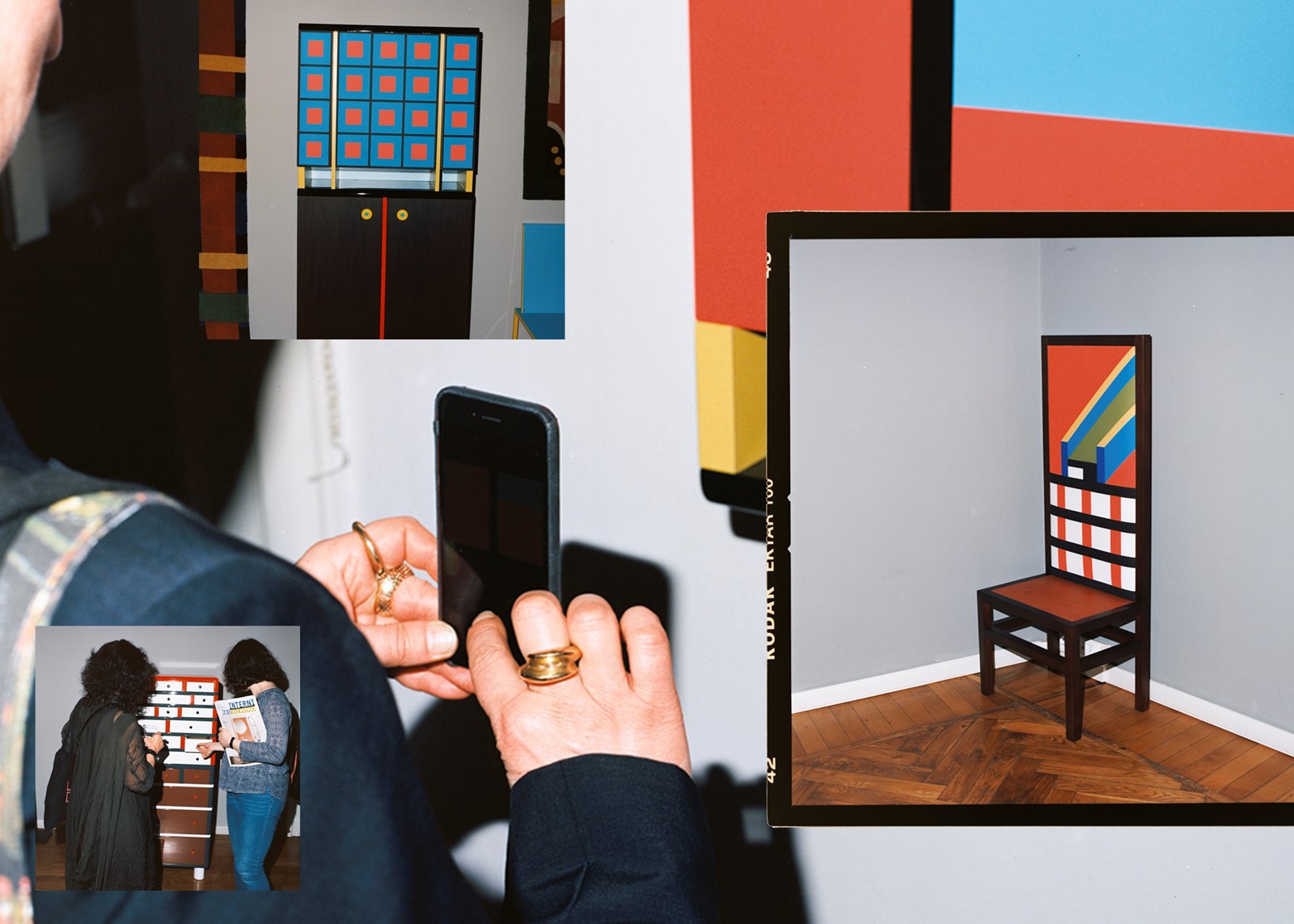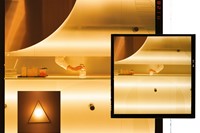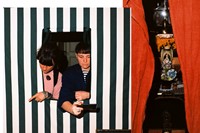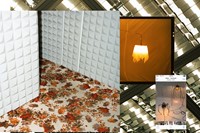Claiming that Salone del Mobile is just a furniture fair is like calling the World Cup ‘just’ a kick-around. Every April, the best minds in the business descend upon Milan to flex their creative muscle and show off what they’ve been toiling away on all year. During the week, galleries, design firms, brands and independent designers will hold over 1,000 openings, hoping for a little slice of the hype that surrounds the fair. From small-scale installations in shops and studios to sprawling, immersive experiences bankrolled by blue-chip brands, the range and scale is dizzying.
There are shows in abandoned factories, ancient Baroque palazzos, private homes and even the rarefied offices of Italian Vogue (not to mention the 345,000 square metre Fiera, which hosts the official Salone del Mobile site). It is an exceptional sight to see. Closed-door Milan, for once, becomes porous, and its citizens and visitors are sucked up into its usually off-limits spaces. To capture the event, we spent the week traversing the city with photographer and collage artist Anthony Gerace, who trained his eye on all the best the week had to offer.
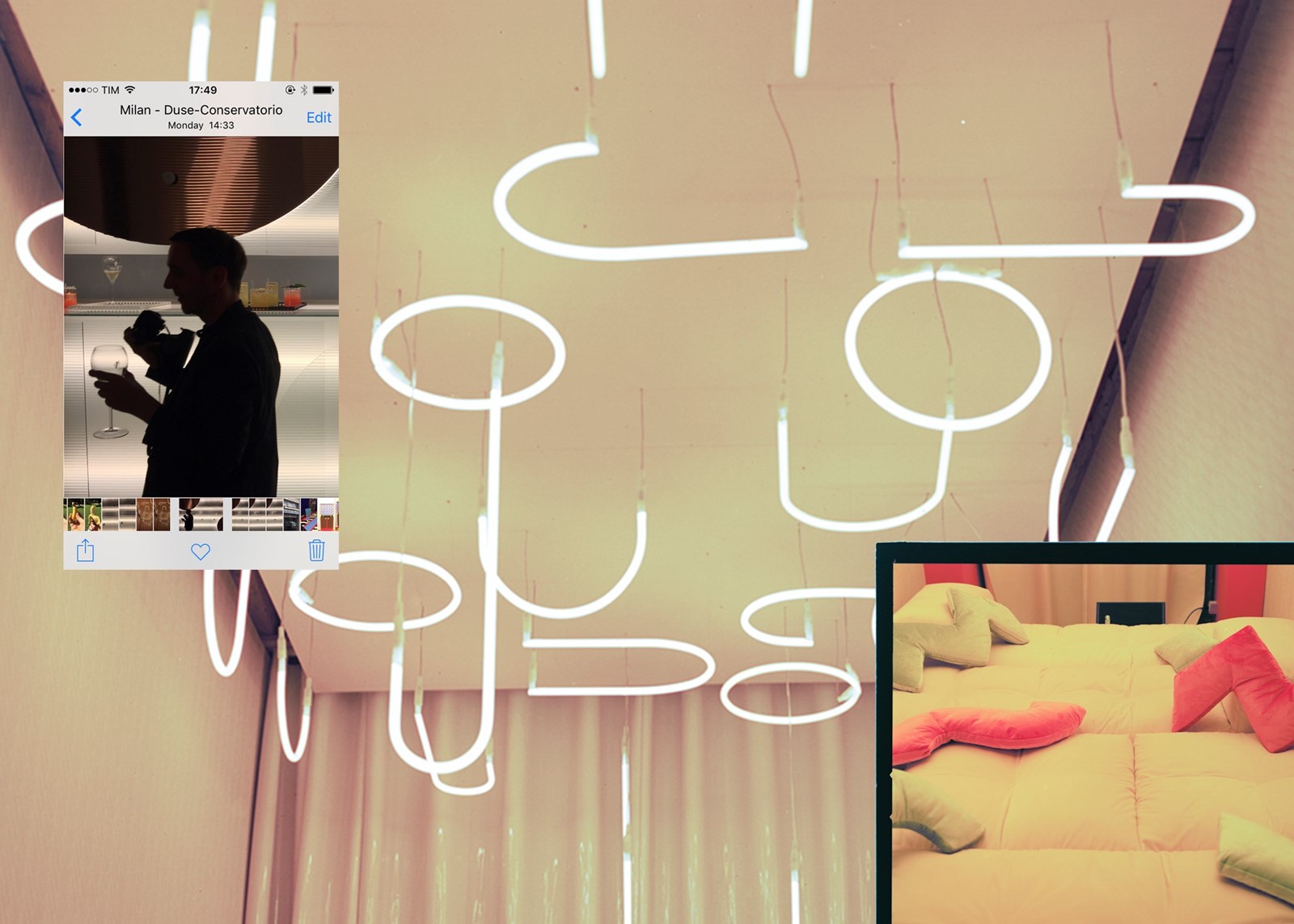
1. Studiopepe: Club Unseen
There’s nothing the Milanese love more than a private party, and for design week Studiopepe took that concept to its logical extreme. Behind whitewashed windows in the city’s Porta Venezia neighbourhood — and only accessible to those wearing the temporary tattoo invite — the Milan-based duo had decked out a stripped down narrow storefront with some of the most eye-catching furniture we saw all week. Drinks were dispensed by hidden bartenders, who would lower cocktails onto a glowing backlit bar from an unseen perch. There was a chill out room with a wall-to-wall bed, where a cluster of looping lights, also designed by Studiopepe, hung above just begging for an after-hours dogpile.
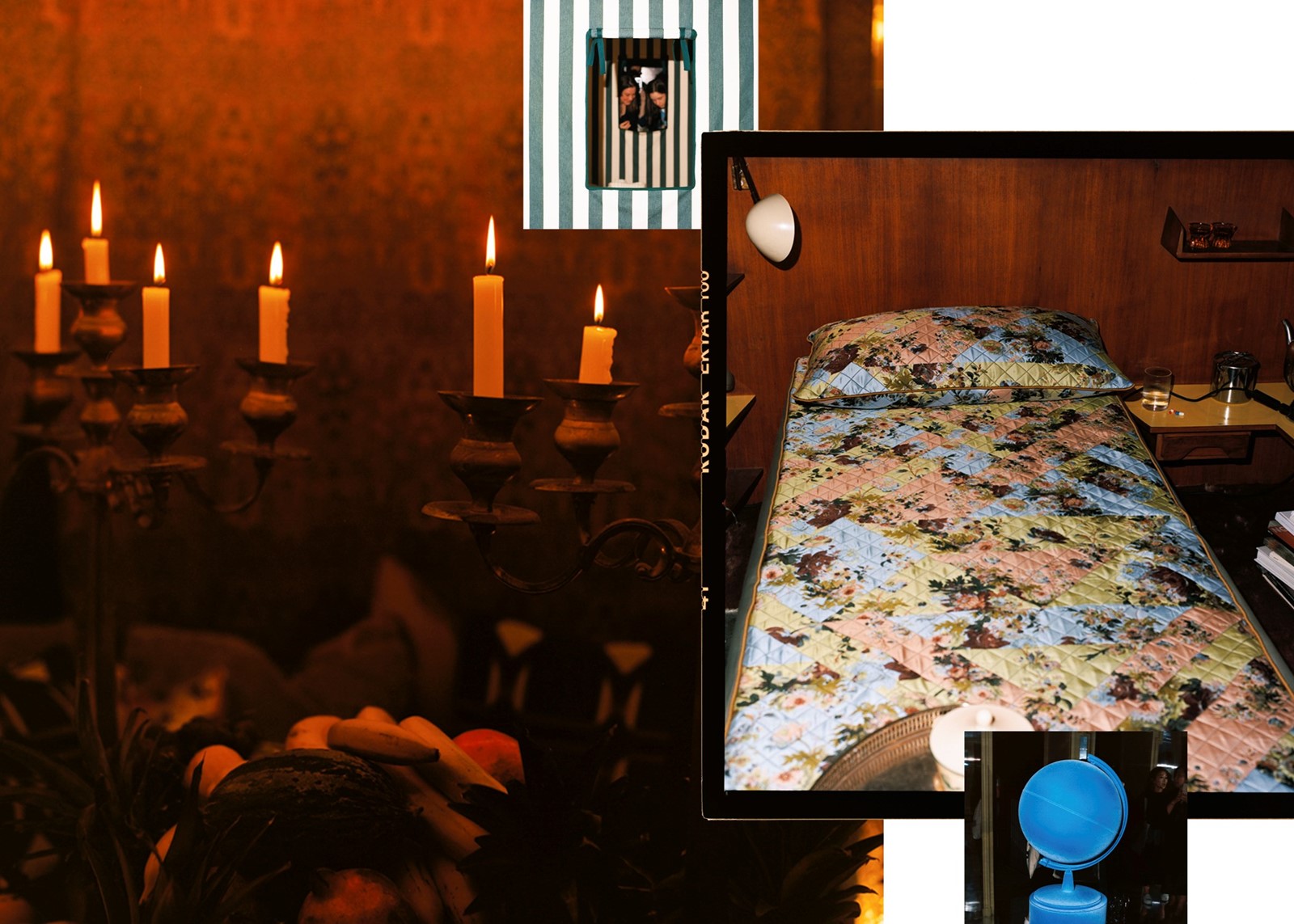
2. Dimorestudio: Transfer
Dimorestudio has been the darling of Salone since founding its office in 2003. This year’s offering, Transfer, was an exercise in the most exquisite kind of scene-making. A series of tents in rich de Le Cuona fabric, lit only from within, were set up in the pitch black gallery space. Inside, Dimore had conjured a series of complicated worlds that evoked, in equal parts, Victorian Wunderkammers and the bedrooms of teenage boys. Richly cluttered with objects both precious and mundane, they were more movie set than interior design. There were closets sourced from Alvar Aalto’s Paomio Sanitorium in Finland, furniture by Olof Ottelin and Achille Castiglioni and art by Jenny Holzer alongside chintzy ceramic flowers, piles of books and records and other collectable kitsch.
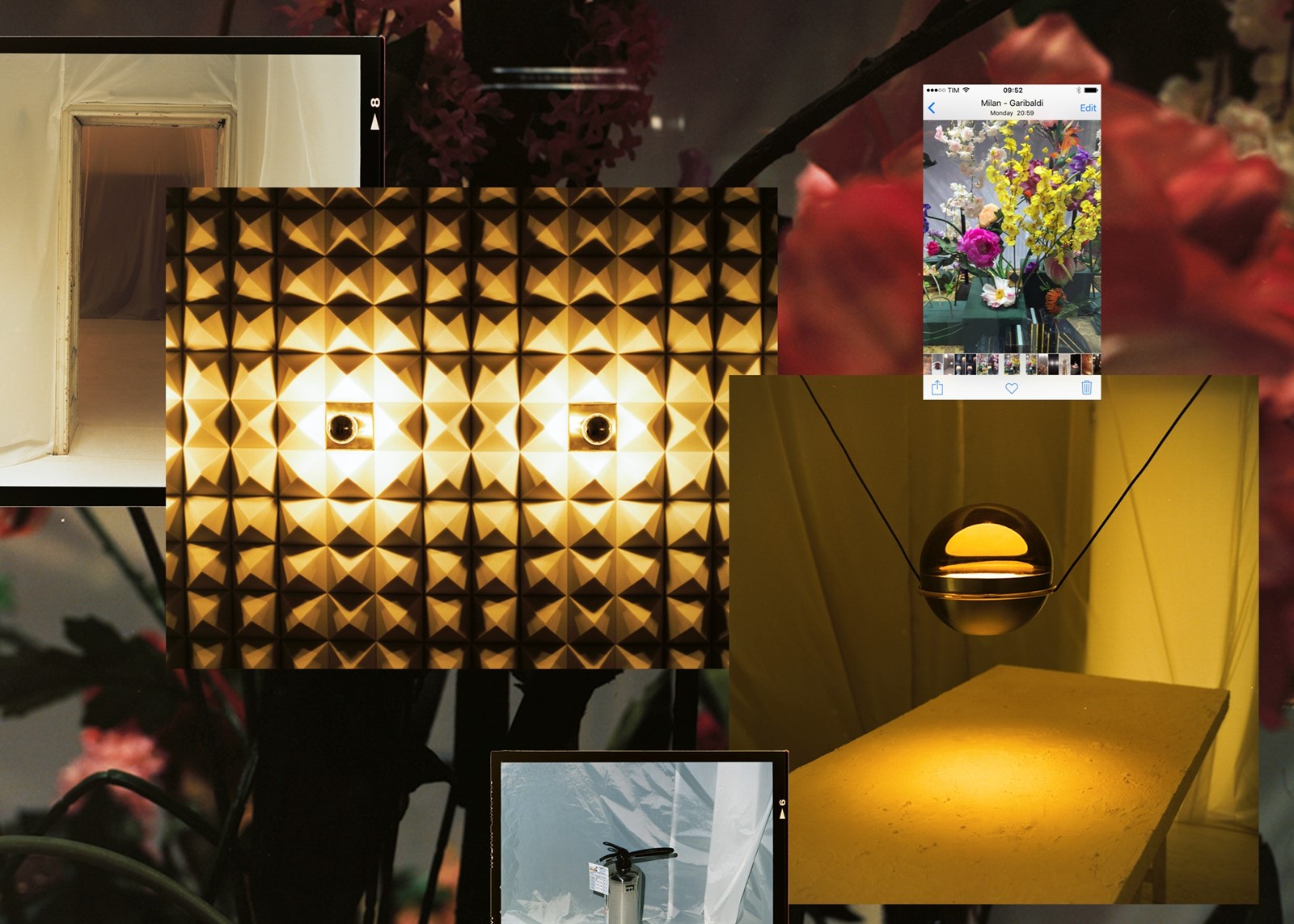
3. Dimorestudio: Perfettamente Imperfetto
Dimorestudio’s exhibitions this year were so over the top they deserve two spots on this list. Their second offering, Perfettamente Imperfetto, installed in an apartment just across the courtyard from their office and permanent gallery space, showed the studio’s latest contemporary furniture in a slightly more sci-fi scenario. To enter the gallery, you first had to follow a long hallway whose walls were padded with spiky acoustic panels, creating an almost deafening silence in the narrow corridor. Stepping inside, industrial techno blasted from speakers and white plastic covering that draped the walls billowed like it was holding back a storm. Each room showcased a different piece of Dimore-designed furniture: spider-like lamps with spindly legs and bodies of amber-coloured glass, lace-draped lighting and an entire vintage display case filled with a jungle of silk flowers and table-top items, apparently inspired by Milanese and Roman salons of the 1960s.
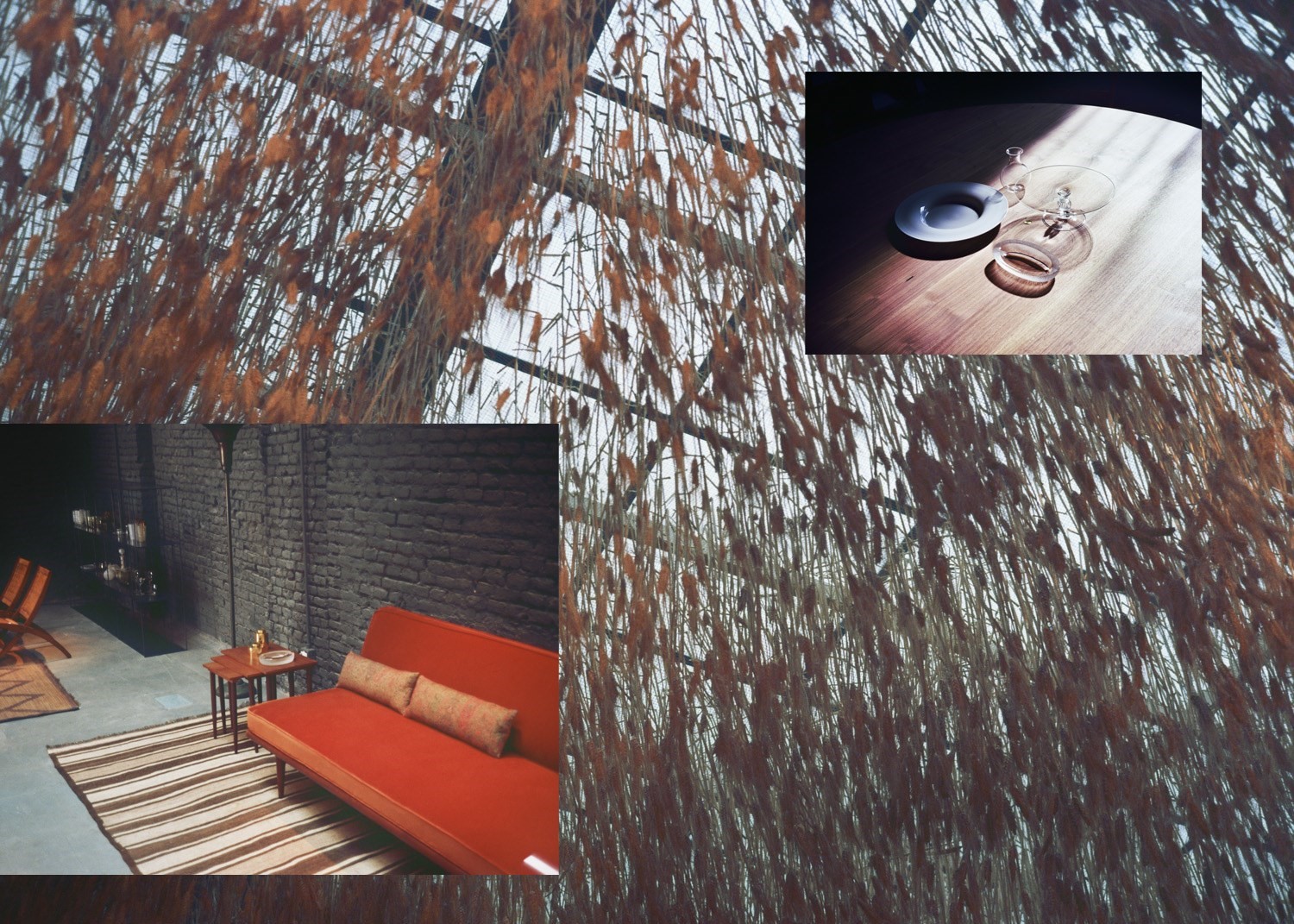
4. Six Gallery
Set in a former monastery on a quiet street between the 5vie medieval quarter and the bustling canalled Navigli district, Six Gallery — one of the city’s newest design spaces — is a single element in a larger creative complex that includes a bistro, flower shop and studio of architecture firm Quincoces-Drago & Partners. The project is run by husband and wife team Fanny Bauer Grung and David Quincoces, who also designed and curated the entire space. For their Design Week installation, the duo truly outdid themselves. Inspired by the deserts from California to Africa, they suspended, by hand, an entire field of wheat from their skylighted gallery roof. Alongside their usual offering of hard to find vintage furniture, they debuted a few of their own designs, like low-slung marbles benches that curve up slightly at the ends and beautifully crafted caned room dividers.
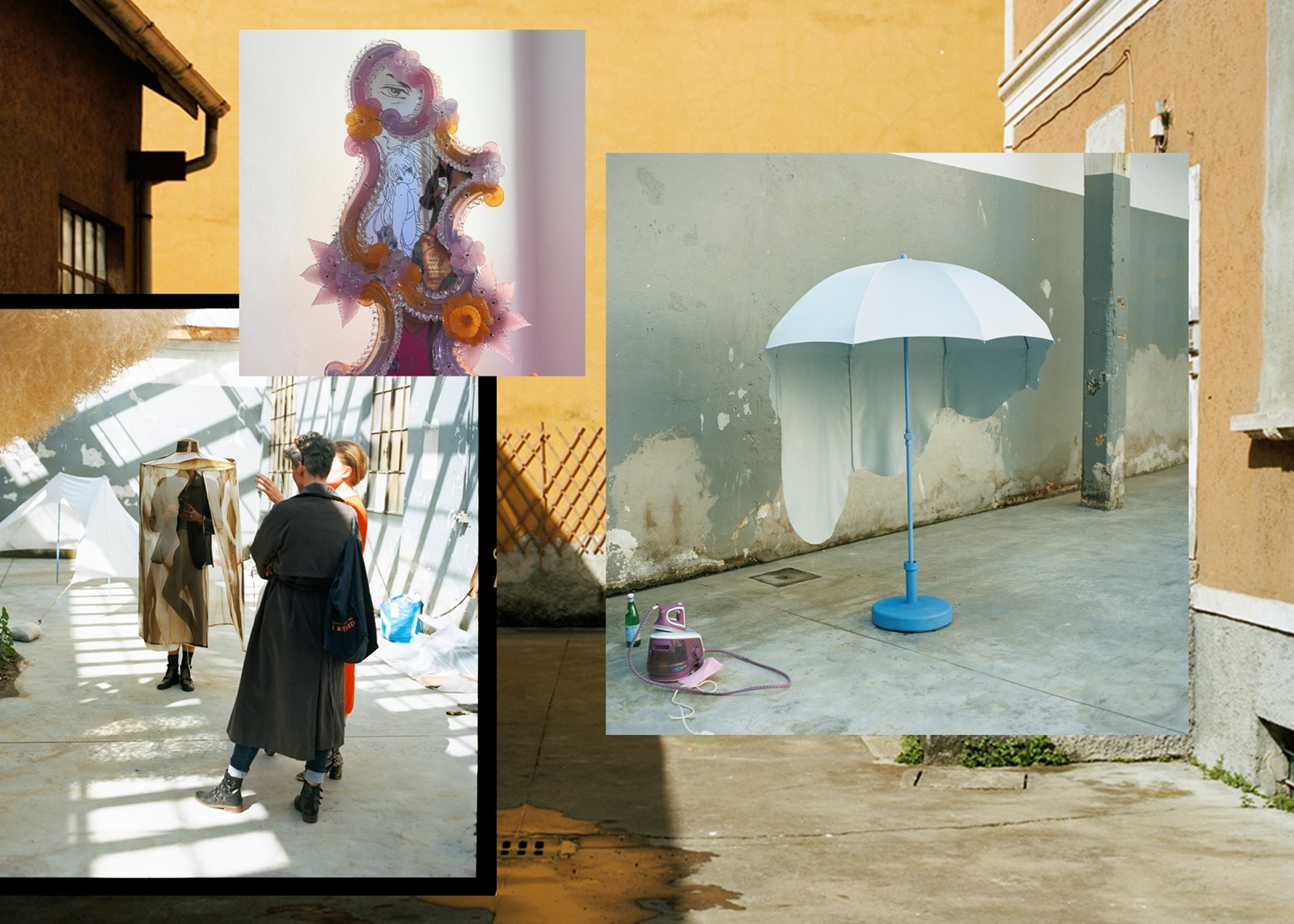
5. Alcova
The newest blockbuster location in the jam-packed Salone line up was Alcova, a crumbling former Panettone factory in the slightly-out-of-the-way neighbourhood of Nolo. Among the vines that pushed their way up through the cracked concrete floor and car-sized piles of earth still taking up real estate on the factory floor, a host of young designers exhibited their latest projects. Highlights were Bohinc Studio’s spindly, romantic seating installed in the former industrial kitchen, buro Belèn’s take on 21st-century sun protection and Giada Fiorindi and Federico Floriani’s baroque Futurist mirrors featuring Venetian blown glass and sexy manga girls.
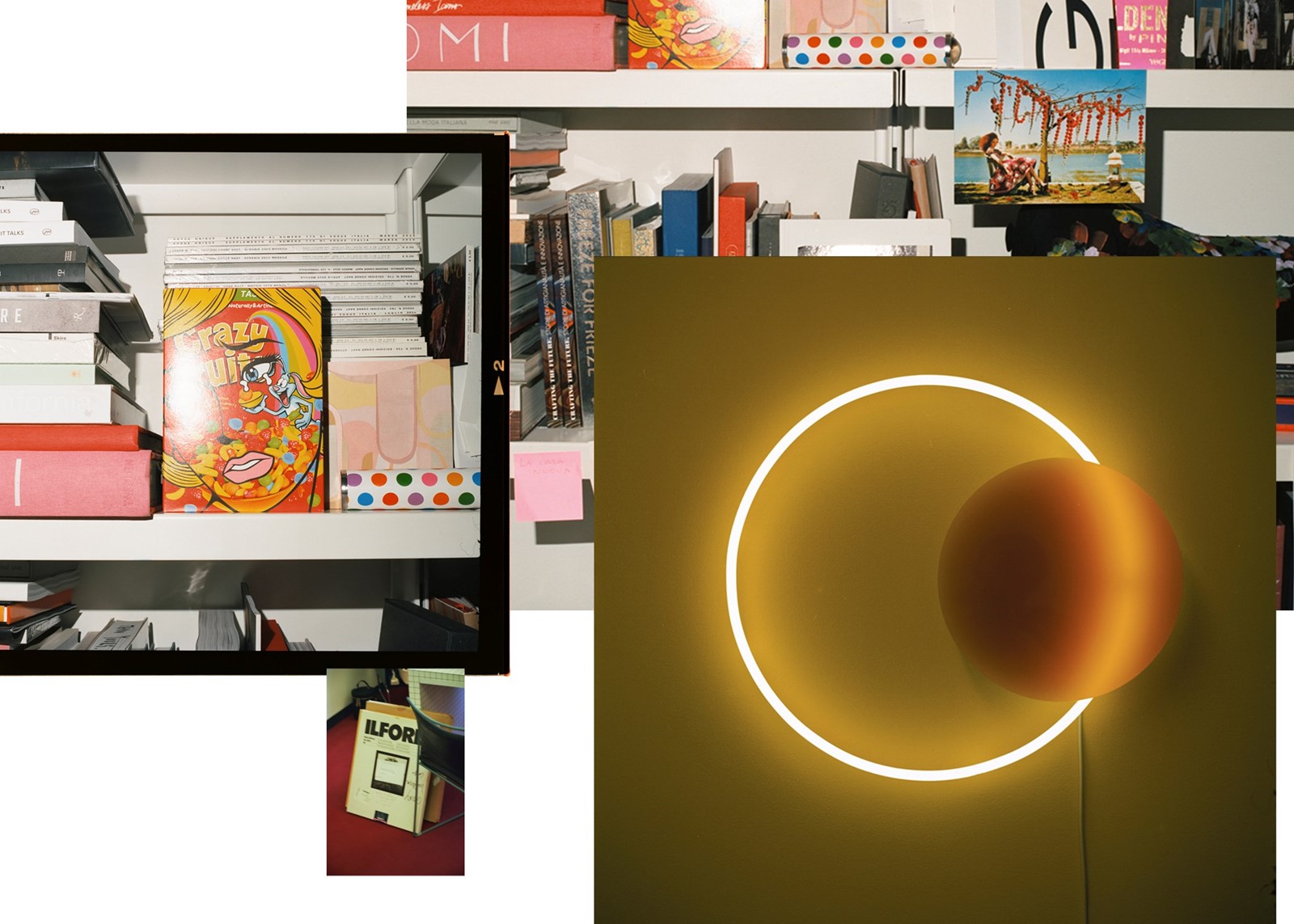
6. Life in Vogue
Overlooking Piazza Cadorna, the exalted confines of Vogue Italia’s offices opened to the public for a special installation during Design Week. Eight designers took over the magazine’s headquarters, presenting creative reinterpretations of each editor’s offices. British designer Faye Toogood, tasked with the office of the editor-in-chief, papered the walls with dreamy illustrations reminiscent of vintage Vogue’s illustrated covers. Rotterdam’s Sabine Marcelis went for an all yellow palette in her reinterpretation of the creative director’s office, while Italian office Muller van Severen installed their latest furniture in the New Talents space.
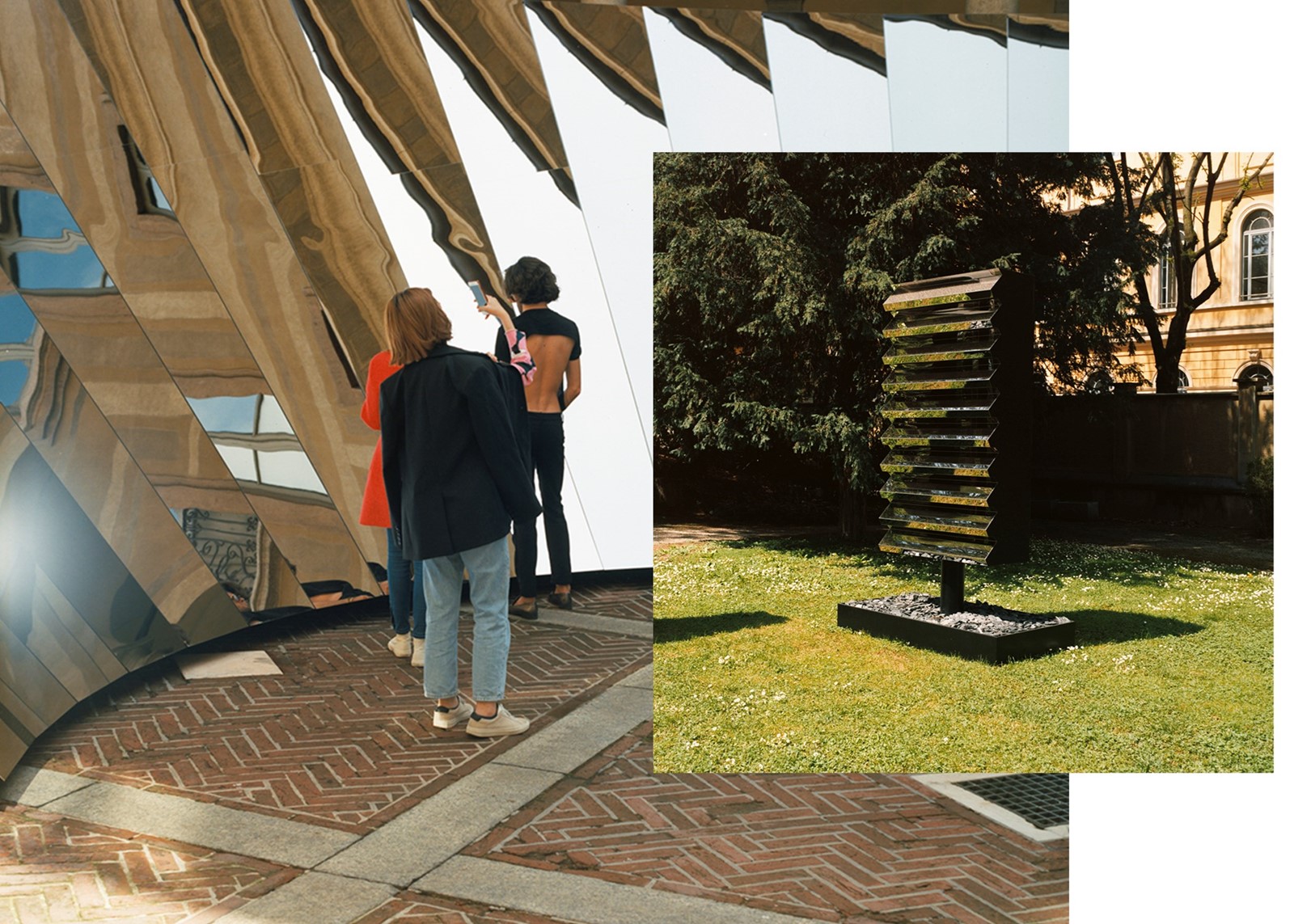
7. Phillip K Smith III x COS
COS tapped Palm Springs-based artist Phillip K Smith III for its always much-anticipated Design Week collaboration. Taking over the courtyard of historic Palazzo Isimbardi, Smith installed a large-scale mirrored sculpture that curved around itself, reflecting the building and sky above. Standing in the centre, you felt as if you could step into the sky, with only the cloudless blue heavens surrounding you. It obviously became one of the week’s biggest Instagram hits, with its endless #artselfie potential. But the project’s real heart was in the tranquil back garden where a series of smaller scale mirrored sculptures were installed. Beanbag-like chairs had been scattered amongst the trees and fairgoers, who had been traipsing around the city in the unusually warm Milanese spring, could sprawl out on the grass. It was a much-needed respite.
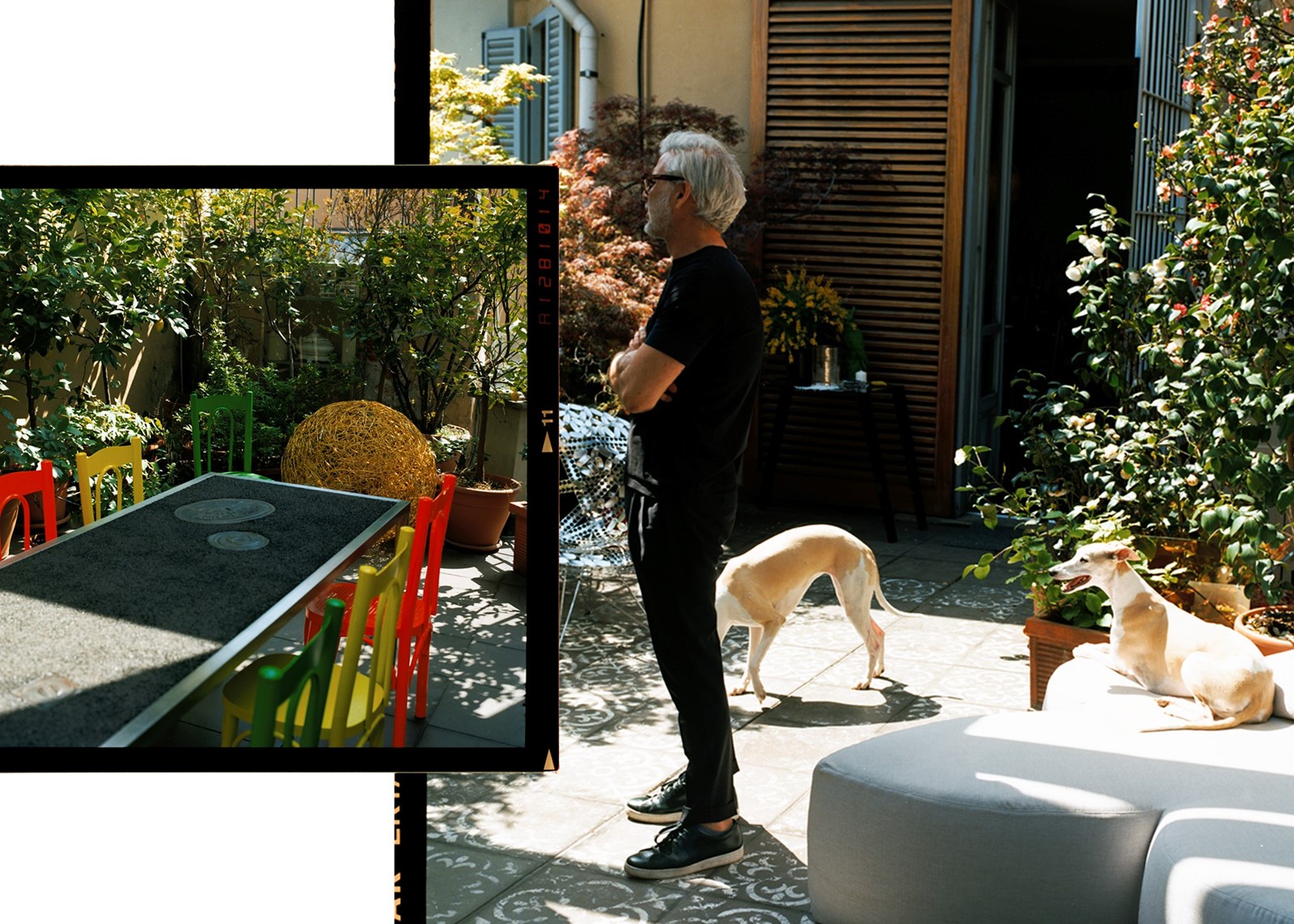
8. Samer Alameen: In-House
Industrial designer Samer Alameen opened his home to the public for the entirety of design week. Visitors to the fifth-floor flat were greeted by the designer’s matching blonde greyhounds, who burst through the front door as soon as they stepped off the elevator. Inside, he showed furniture of his own design, like jigsaw-esque seating and coffee tables, and Meccano-inspired shelving. After a day of edging around delicate installations in look-don’t-touch gallery spaces, the relaxed front room exhibition was a total relief. On the terrace, which overlooks the jumbled apartment buildings of Porta Venezia, designer Roberta Colombo sat drinking coffee at a table of her own design. We could have easily stayed there all week.
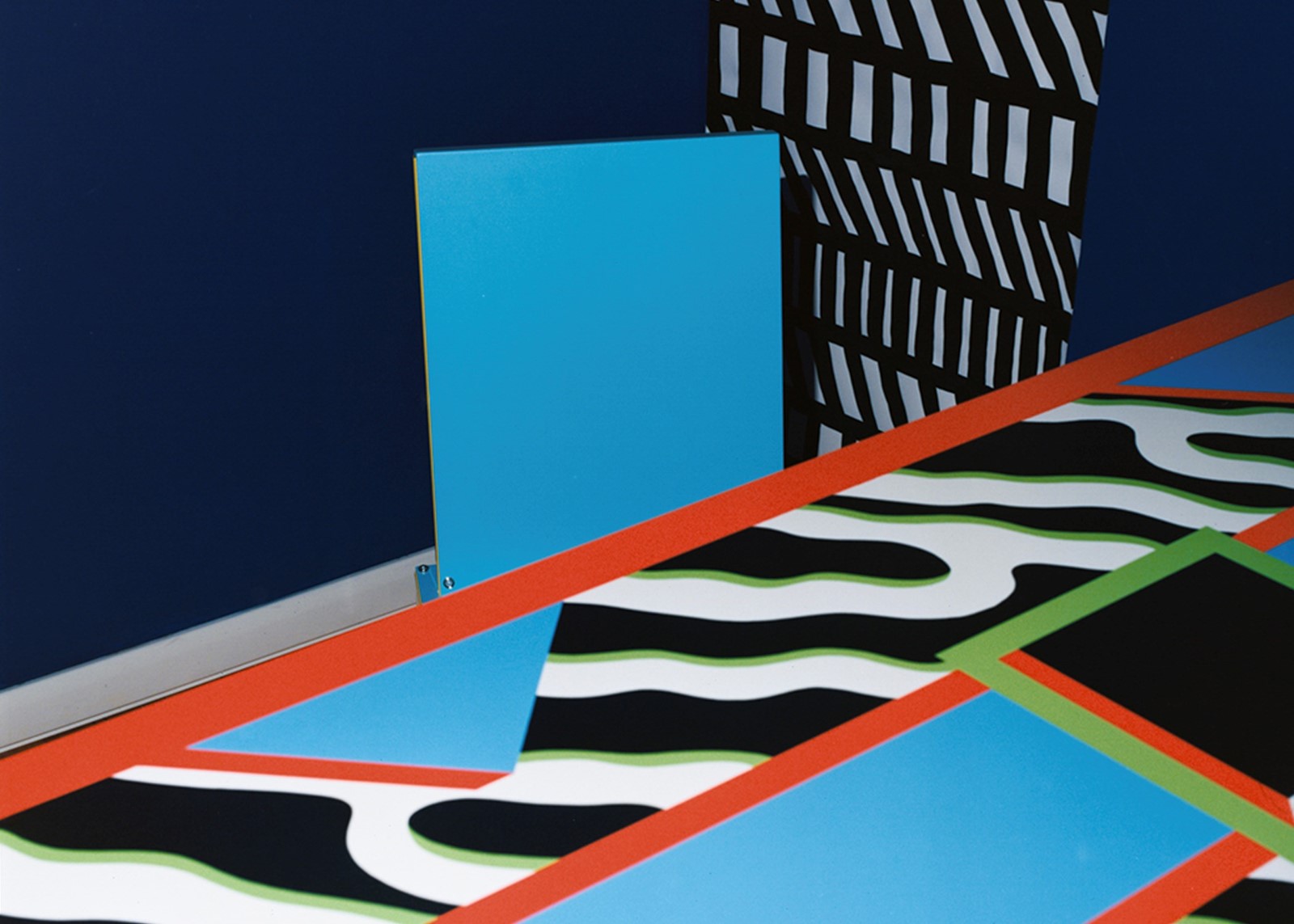
9. Galleria Post Design: Nathalie du Pasquier x George Snowden
Post Design is one of Milan’s hidden gem’s. The official gallery of the Memphis group, it’s the place to see all of the much-hyped pieces from the period. This year at Salone, it exhibited an all-new collection from founding members Nathalie du Pasquier and George Snowden. Packed densely in the classic Milanese apartment the gallery calls home were carpets, ceramics, furniture and seating adorned with the group’s infamous colour-blocking and bombastic patterns.
